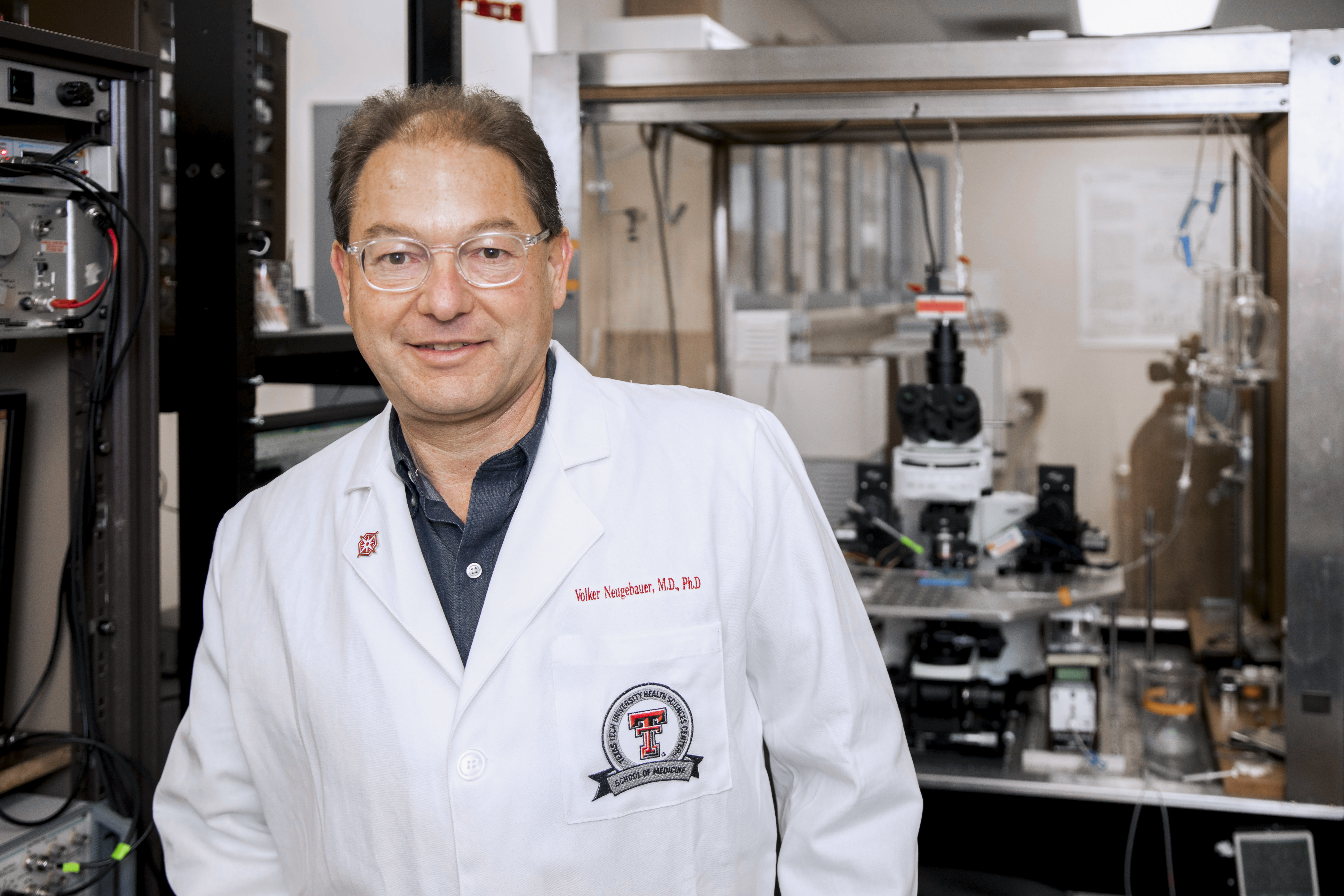
Bridging Mind and Medicine
By Nate Ziegner | Photography by Kami Hunt
When Dr. Volker Neugebauer started his medical journey, the term “neuroplasticity” had just been coined. In more than three decades of work in neurosciences and 11 years at Texas Tech University Health Sciences Center (TTUHSC), he has used the concept to pioneer groundbreaking advancements in memory care.
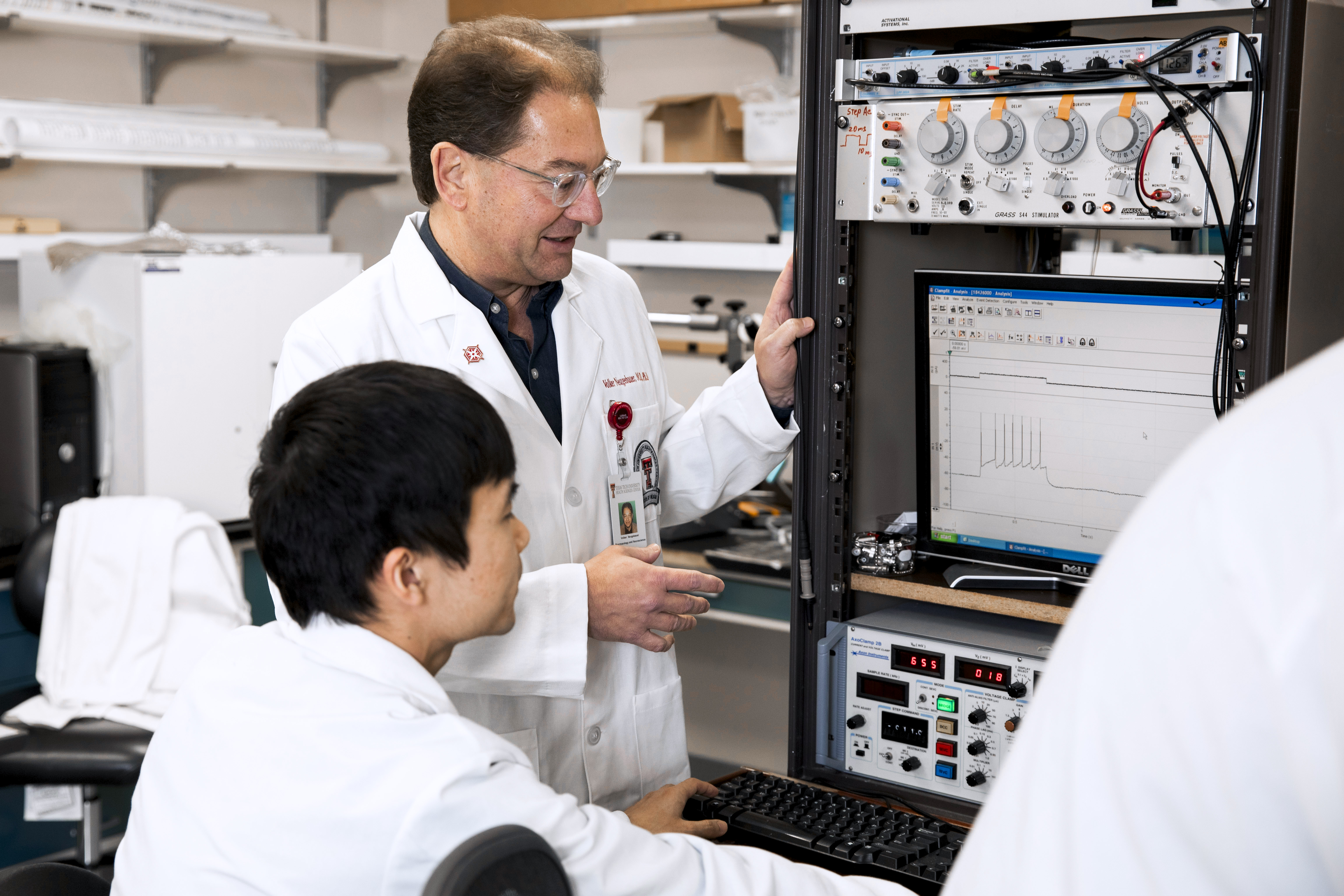
Originally from rural Germany, Dr. Neugebauer first dreamt of becoming a teacher. However, during his undergraduate studies, he developed a desire to make a difference in the lives of people through health care and applied to medical school at the University of Würzburg.
During that time, a visiting scientist taught a class on neuroscience and neuroplasticity—how the brain retains information associated with emotions and how positive or negative feelings enable individuals to use that information to interpret the world. With Dr. Neugebauer’s interest was piqued, the two began exchanging neurophilosophy literature.
“No one else in that class was really interested in the topics,” Dr. Neugebauer said. “So, at the end of the semester, he asked if I would like to fill a spot as a research assistant in his lab.”
Despite some doubts about his ability in this new area, Dr. Neugebauer bravely agreed. The opportunity would allow him to eventually graduate from medical school while doing graduate work to obtain his Ph.D. a year later.
Fresh out of school, he began practicing neurology in a hospital brain tumor ward. The urgency of the conditions he was treating and the responsibility of managing the entire floor by himself at times often left him feeling overwhelmed and stuck in a sink-or-swim mentality.
“It was so rewarding to be able to get hugs and a thank you from patients, but I felt like I wasn’t making any progress there,” Dr. Neugebauer said.
He decided to pursue research, and after receiving an award from the German Research Council, he made his way to the U.S., landing at the University of Texas Medical Branch in Galveston. There, he obtained his first National Institute of Health (NIH) grant and rose through the ranks to become the neuroscience graduate program director and department vice chair.
In 2014, Dr. Neugebauer had the opportunity to move to Lubbock—a place he knew little about—to become the chairman of TTUHSC’s Department of Pharmacology. In 2019, he was appointed executive director and chief scientific officer of the Garrison Institute on Aging, which researches the causes of neurodegenerative diseases like Alzheimer’s and dementia.
“When I first visited Lubbock, I noticed two things,” Dr. Neugebauer said. “The first was a can-do attitude; the people at TTUHSC wanted to make things happen. The second was that everything was happening under one roof, a translational aspect that has always been my vision.”
Once at TTUHSC, Dr. Neugebauer established the Center of Excellence for Translational Neuroscience and Therapeutics. The organization fosters collaborations between scientific and clinical departments to advance diagnostic and therapeutic strategies.
Wearing multiple hats as a researcher, director, mentor and medical scientist, Dr. Neugebauer’s journey has come full circle. Little did he know that, as a young man aspiring to be a teacher, he would one day fulfill that desire—though in a different discipline than he had imagined.
Dr. Neugebauer’s work has led to over $20 million in funding from the NIH. He has mentored countless researchers and spent thousands of hours studying neuroplasticity, the concept that sparked his passion, and notes that this area is becoming increasingly important as health care providers assist an aging population.
Over the course of his career, Dr. Neugebauer has witnessed and been a part of the transformation and growth of neuroscience, gaining considerable recognition along the way. In 2023, he was named among the world’s top 2% of scientists by Stanford University. In 2020, he received the Chancellor’s Council Distinguished Research Award and was recognized as a Grover E. Murray Professor in 2024—two of the Texas Tech University System’s highest awards.
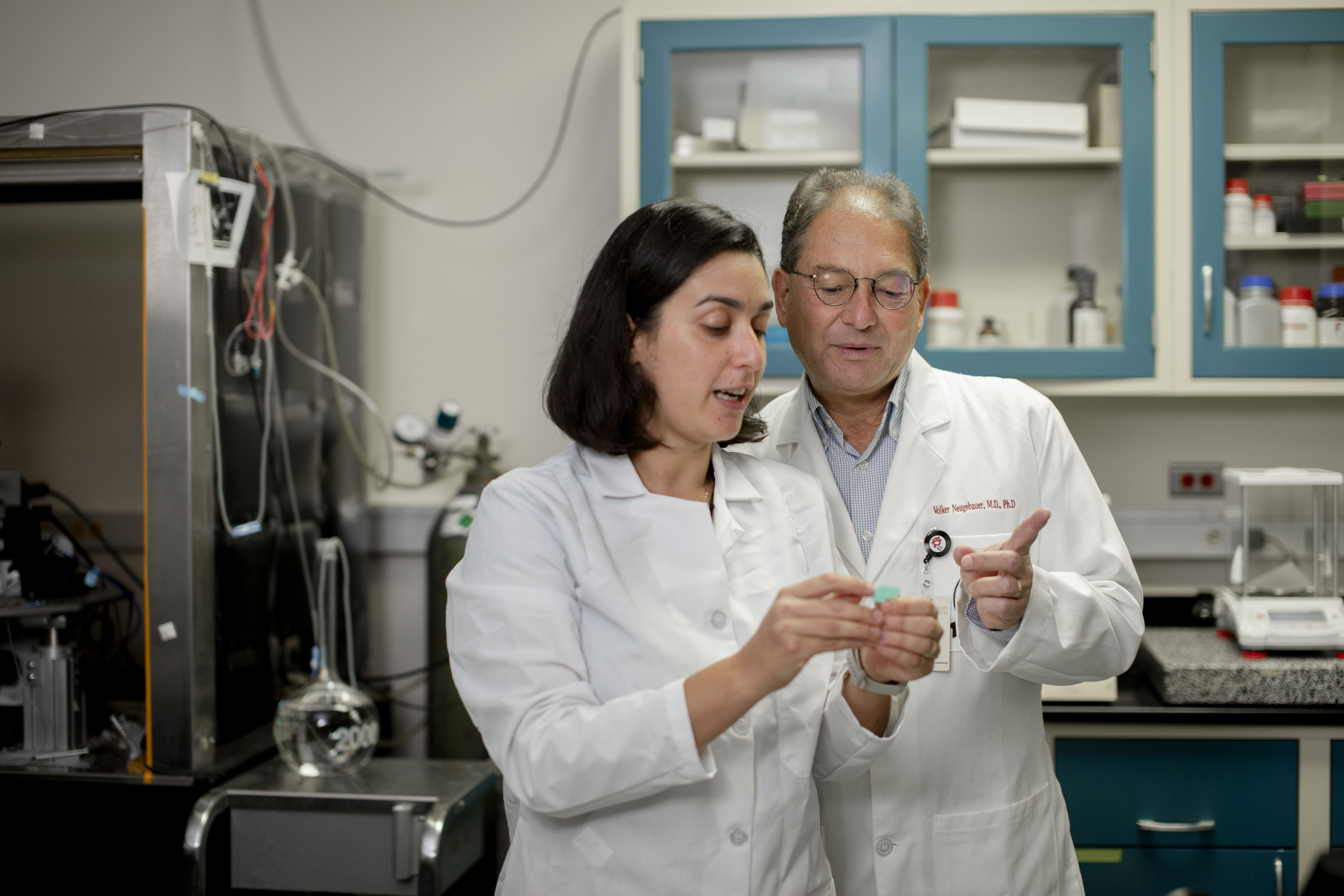
“Receiving the Distinguished Research Award from Chancellor Mitchell and President Rice-Spearman let me know I was on the right track and that my institution sees the value in my work and wants me to continue,” Dr. Neugebauer said.
While being recognized is not the reason for his work, it helps fuel his commitment to the field.
“What is unique about TTUHSC is that we all have the same motivations,” Dr. Neugebauer said. “No one is running out to seek recognition. Everyone is doing their work to make advancements and provide help for our community.”
All of this has culminated in Dr. Neugebauer's proudest achievement: the Garrison Institute’s Memory Clinic.
“The memory clinic is a game changer for our community and very much in line with the mission and vision of the Garrison Institute on Aging, to promote healthy aging and address health issues in the aging population,” Dr. Neugebauer said. “It is a true reflection of the entrepreneurial spirit at TTUHSC.”
The clinic’s director, Dr. Jonathan Singer, credits Dr. Neugebauer for attracting him to Texas Tech University (TTU) and TTUHSC and fueling his drive to make the entity a reality.
“I’m one of the few people who have a dual appointment at both institutions, and Dr. Neugebauer made that happen,” Dr. Singer said. “Along with being in the psychological sciences department at TTU, I am also an assistant professor in pharmacology and neuroscience at TTUHSC. That has opened doors for me to create opportunities and secure grants for the new clinic.”
The Memory Clinic offers more than basic memory care; it provides comprehensive services not only to patients but also to their families, including medication management, caregiver support and education and developing a personalized care plan.
“We came to Dr. Neugebauer with this vision I’d had of a memory clinic that is the forefront of care for individuals with neurological diseases and their caregivers,” Dr. Singer said. “It was risky to open a clinic and put himself on the line, but he always trusted us. With that trust and support, he has been integral in designing the clinic and getting it where we are today.”
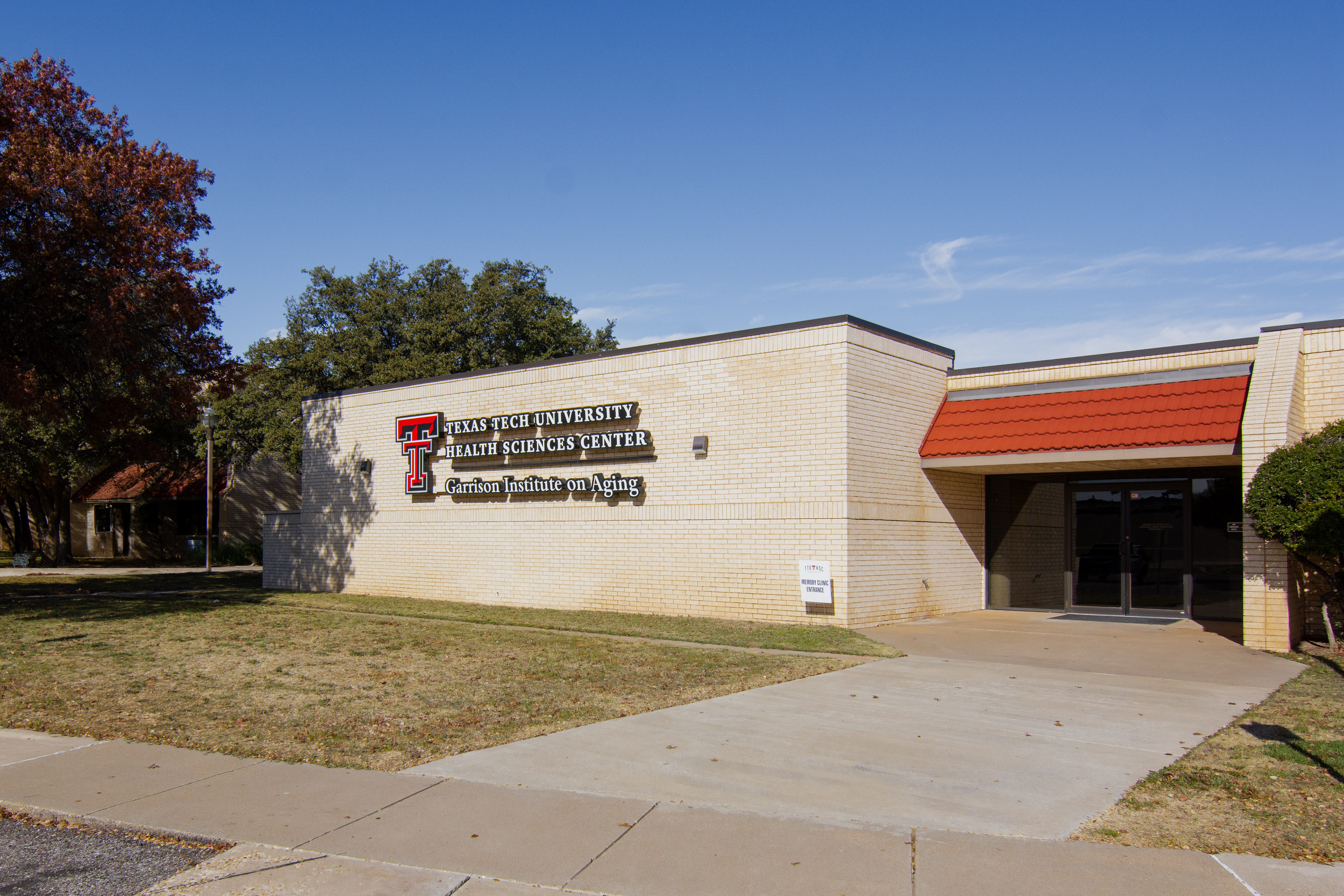
While Dr. Neugebauer’s longtime goal has come to fruition, he is not stopping anytime soon. Continued advancements in the field—reaching the statewide level—promote his vigor for spearheading research and services further.
In February 2025, the Texas Legislature filed Senate Bill 5 and Senate Joint Resolution 3 to establish the Dementia Prevention and Research Institute of Texas, known as DPRIT. Dr. Neugebauer said when he heard it was filed, his heart was filled with joy, as his passion is helping improve the lives of all Texans.
“A few days ago, I was at the Garrison Institute and saw an employee heading out for the day, but not before stopping to grab a pamphlet for their family,” Dr. Neugebauer said. “That is one of those moments where I can say, ‘Wow, there is such great need for this kind of service and care out there.’”
Building Community Care: The Comprehensive Memory Clinic’s Mission
At the Garrison Institute, the Comprehensive Memory Clinic is pioneering civic-minded, community-focused patient care that goes beyond routine medical visits.
First pitched right before the COVID-19 pandemic, the vision for the clinic was met with fervent support from Dr. Lori Rice-Spearman, then-provost and now president of TTUHSC.
Dr. Neugebauer said that the support and culmination of the vision into the clinic, as seen today, reflect the can-do attitude and collaborative spirit at TTUHSC. He sees that further in Dr. Singer’s tireless devotion as director.
Dr. Singer has helped transform the facility from mere idea to actuality and continues to play a vital, hands-on role in day-to-day operations. He connected the clinic to Wovenly, an organization integrating dementia support with health care providers, which led to the establishment of the Guiding an Improved Dementia Experience model.
“As the director, I really have three jobs,” Dr. Singer said.
The first is obtaining grants and providing foundational support, including meeting with donors to make sure the clinic’s services are low-to-no cost to patients.
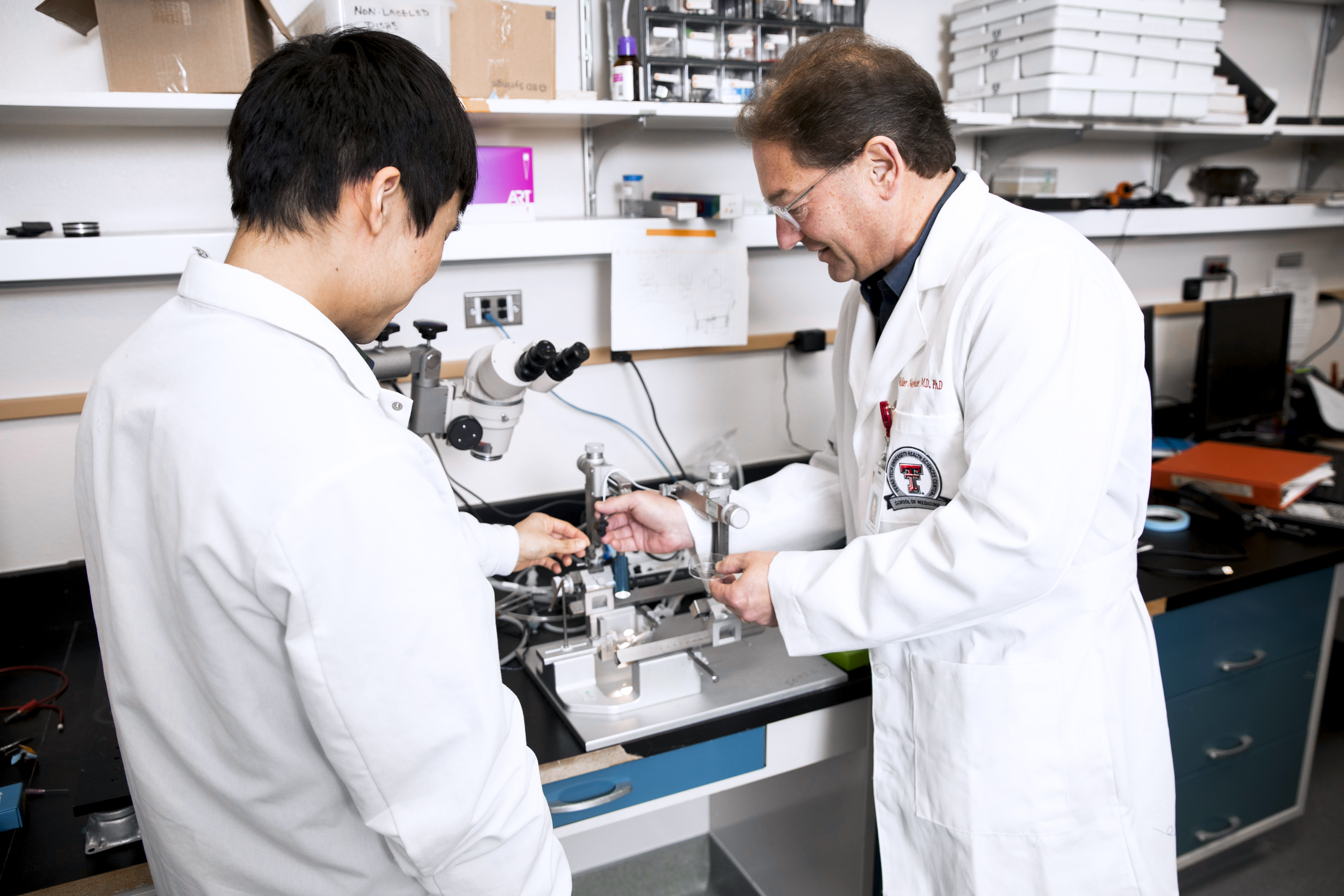
His second goal is to grow the clinic. Dr. Singer said he has no intention of stopping now that the clinic is open. He is working with the speech and language pathology department at TTUHSC, hoping they will join the clinic one day a week to assist patients further.
Lastly, but most important to Dr. Singer, is working in the clinic. Although he is the director, he wants to maintain a hands-on relationship with patients who walk through the clinic’s doors, working with them directly. He still sees patients every day as a neuropsychologist and supervises students who are training to do the same.
Dr. Singer said spending quality time with patients is the cornerstone of the clinic’s mission. What sets his team apart is the bond they develop with patients and their families.
“I hear from so many patients that their typical experience in a doctor’s office is in and out in 15 minutes,” Dr. Singer said. “That is not us.”
On average, Dr. Gayle Ayers, the co-medical director, spends over an hour in the room with each patient, while Dr. Singer spends anywhere from an hour to, at times, eight hours with a patient when doing full neuropsychological testing.

